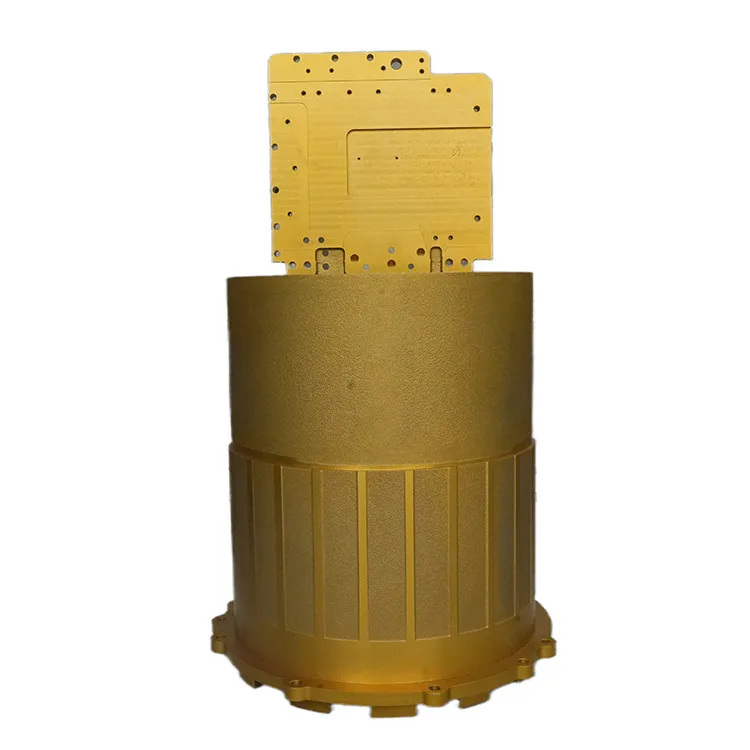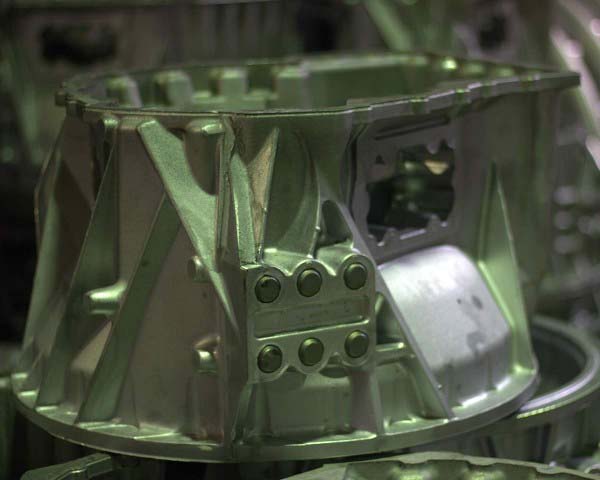Discover the Benefits of Aluminum Casting in Modern Production
Aluminum casting has emerged as a pivotal process in modern-day manufacturing. Its lightweight yet durable nature provides significant benefits for numerous industries. The ability to achieve elaborate layouts and preserve limited resistances includes to its allure. Aluminum Casting Company. In addition, the cost-effectiveness and environmental benefits make it a sustainable choice. As manufacturers seek cutting-edge remedies, the duty of aluminum casting proceeds to progress. What details applications and advantages wait for exploration in this vibrant area?
Light-weight Yet Solid: The Benefits of Aluminum
Although lots of products are used in production, aluminum stands out as a result of its impressive mix of lightweight residential properties and outstanding stamina. This unique feature makes aluminum a suitable choice for different applications, especially in sectors such as auto, aerospace, and construction. Its low density allows for easier handling and transportation, adding to minimized power intake throughout production and setting up processes.
Moreover, aluminum's strength-to-weight proportion goes over, enabling manufacturers to create long lasting parts without adding unneeded bulk. This characteristic is particularly useful in fields where weight decrease can lead to improved gas effectiveness and overall performance. Additionally, aluminum's resistance to deterioration boosts the durability of items, even more strengthening its allure in contemporary manufacturing.
Inevitably, the light-weight yet solid nature of aluminum positions it as a favored material, cultivating innovation and effectiveness throughout several industries. Makers increasingly identify that these advantages can cause substantial advancements in style and functionality.
Precision and Complexity in Layout
As suppliers accept the abilities of aluminum casting, they discover new opportunities for precision and intricacy in design. This production process permits the development of elaborate shapes and detailed features that traditional methods commonly battle to accomplish. The fluidness of liquified aluminum enables it to fill up complicated mold and mildews, causing components with tight tolerances and great surface coatings.
This precision is specifically advantageous in sectors such as aerospace and auto, where exact specs are crucial for performance and safety and security. Aluminum casting likewise accommodates cutting-edge styles that improve functionality without endangering structural stability.

Cost-Effectiveness and Effectiveness
Cost-effectiveness and efficiency are extremely important factors to consider for makers exploring aluminum casting as a manufacturing approach. Aluminum casting offers significant cost advantages due to its reduced product expenses contrasted to various other metals (aluminum casting). The light-weight nature of aluminum reduces shipping and handling expenses, and its superb thermal conductivity permits quicker cooling times throughout the casting process, boosting total production rate
Aluminum's flexibility allows manufacturers to develop complicated shapes and styles, lessening the demand for extra machining or setting up. This streamlining of production not only lowers labor costs however YOURURL.com also shortens lead times, allowing companies to react promptly to market demands.
The toughness and corrosion resistance of aluminum castings contribute to longer product lifespans, minimizing substitute costs over time. Therefore, makers can accomplish a balance of high-quality output and minimized operational costs, making aluminum casting an increasingly eye-catching option in contemporary manufacturing.
Ecological Sustainability of Aluminum Casting
Aluminum casting stands apart as an ecologically lasting production alternative, especially as a result of its recyclability and minimized ecological footprint. The procedure enables the efficient use aluminum, a material that can be reused forever without losing its homes. This particular significantly decreases the need for virgin aluminum, therefore lessening and conserving natural sources energy intake connected with extraction and handling.

Applications Throughout Industries: From Automotive to Aerospace
While diverse industries remain to seek cutting-edge products for manufacturing, aluminum casting has proven to be a functional remedy throughout sectors such as automotive and aerospace. In the automobile sector, aluminum spreadings add to lightweight lorry layouts, enhancing fuel effectiveness and performance. Elements like engine blocks, transmission real estates, and wheels benefit from aluminum's strength-to-weight proportion.
In aerospace, aluminum casting plays a substantial duty in producing intricate components that call for high toughness and low weight. Airplane elements such as braces, touchdown equipment, and structural frames utilize aluminum for peak performance and security.
In addition, the versatility of aluminum casting permits it to satisfy various other sectors, including customer electronic devices, aquatic, and commercial equipment. This flexibility not only meets the particular demands of different applications but likewise supports continuous technology in manufacturing procedures. Because of this, aluminum casting continues to be a principal in modern Learn More production throughout many markets.
Often Asked Concerns
How Does Aluminum Casting Contrast to Various Other Metal Casting Processes?
Aluminum casting deals remarkable strength-to-weight proportions, faster cooling rates, and superb rust resistance contrasted to other steel casting procedures. These benefits make it ideal for numerous applications, improving effectiveness and performance in manufacturing.
What Are the Typical Lead Times for Aluminum Casting Projects?
Normal lead times for aluminum casting jobs range from 2 to 8 weeks, depending upon variables such as complexity, order size, and production ability. Effective planning can aid decrease hold-ups and improve job timelines.
Can Aluminum Casting Be Made Use Of for Intricate Styles?
Aluminum casting can undoubtedly accommodate elaborate designs. Precision aluminum casting. Its fluidity allows for detailed patterns and forms, making it suitable for complicated parts in different industries. This convenience enhances style flexibility while preserving architectural stability and performance
What Post-Processing Options Are Readily Available After Aluminum Casting?
Post-processing alternatives for aluminum casting include machining, brightening, surface therapies, anodizing, and welding. These strategies enhance the surface, improve dimensional accuracy, and increase deterioration resistance, thus maximizing the end product's performance and aesthetic allure.
Exactly How Do Temperature Level Modifications Influence Aluminum Casting Top Quality?
Temperature level modifications considerably impact aluminum casting top quality by affecting fluidness, solidification rates, and prospective issues. Quick cooling can result in enhanced brittleness, while excessive heat may create bending or incomplete filling of molds throughout casting.
Aluminum casting has arised as a crucial procedure in modern-day production. As manufacturers embrace the abilities of aluminum casting, they discover new opportunities for precision and complexity in style. Aluminum casting processes normally create less greenhouse gas exhausts compared to various other metal casting methods. While diverse markets continue to seek cutting-edge products for production, aluminum casting has actually verified to be a flexible solution throughout fields such as automotive and aerospace. In the auto sector, aluminum castings contribute to light-weight automobile styles, enhancing gas effectiveness and performance.